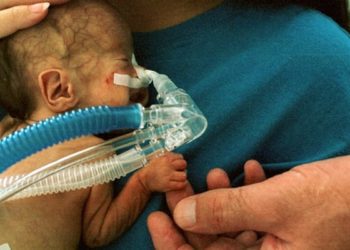Deaths of extremely premature infants decrease, necrotizing enterocolitis deaths on the rise
1. From 2000 to 2011, the overall mortality of extremely premature infants decreased.
2. Death attributed to pulmonary and infectious causes decreased, while deaths attributed to necrotizing enterocolitis increased.
Evidence Rating Level: 1 (Excellent)
Study Rundown: Prematurity continues to be one of the leading causes of neonatal mortality. Extremely premature infants, defined as infants born between 22 and 26 weeks of pregnancy, are at an increased risk of death. It was previously found that for extremely premature infants from 1993 to 1997, pulmonary conditions were the main cause of death in those surviving beyond 12 hours. Advances in neonatal care since then may have led to a decrease in deaths related to pulmonary causes.
In this prospective, multi-center study, the authors collected data from 2000 to 2011 to evaluate for factors attributing to deaths among extremely premature infants. As hypothesized, they found that the overall mortality of these infants decreased. In addition, this study found that deaths due to immaturity, infections, central nervous system injury, and pulmonary causes decreased while deaths due to necrotizing enterocolitis increased. Although there continues to be challenges in identifying specific causes of deaths, these results are fundamental in guiding future research and aiding clinicians in counseling family.
Click to read the study, published today in NEJM
Relevant Reading: Neonatal Outcomes of Extremely Preterm Infants From the NICHD Neonatal Research Network
In-Depth [multi-center, prospective cohort]: Infants born at 22 0/7 to 28 6/7 weeks in a Neonatal Research Network center between January 1, 2000, and December 31, 2011 were included in the study for a total of 22,248 extremely premature infants enrolled.
The number of deaths per 1000 live births was 275 (95% confidence interval [CI]) from 2000 through 2003, and 285 (95% CI) from 2004 through 2007. This number decreased to 258 (95% CI) from 2008 through 2011 (p=0.003 for the comparison across three periods). The number of deaths attributed to pulmonary causes decreased in 2008-2011 as compared to 2000-2003 and 2004-2008: 68 (95% CI) vs. 83 (95% CI) and 84 (95% CI) per 1000 live births, respectively; P=0.002. Death attributed to necrotizing enterocolitis increased in 2008-2011 as compared to 2000-2003: 30 (95% CI) vs. 23 (95% CI), P=0.03.
More from this author: Blood cell clones with acquired mutations linked with increased risk of blood cancers, Key mutations may protect against coronary artery disease, [CORAL-1 trial] Interferon-free regimen for recurrent hepatitis C after liver transplant safe and effective
Image: CC/RadsWiki
©2015 2 Minute Medicine, Inc. All rights reserved. No works may be reproduced without expressed written consent from 2 Minute Medicine, Inc. No article should be construed as medical advice and is not intended as such by the authors, editors, staff or by 2 Minute Medicine, Inc.







